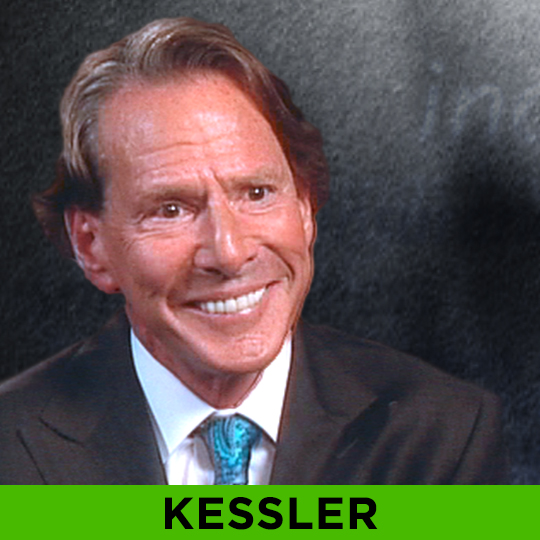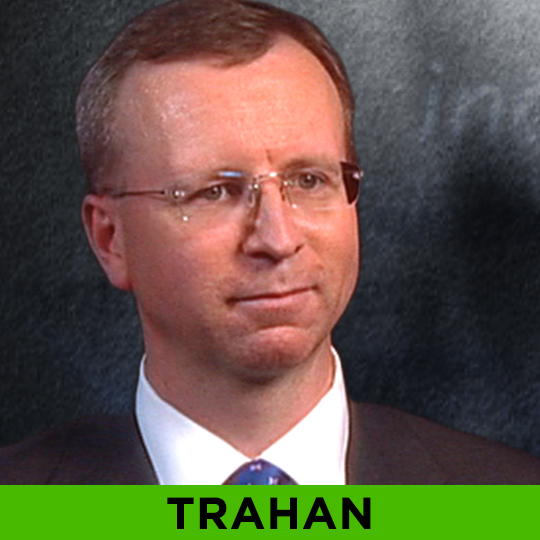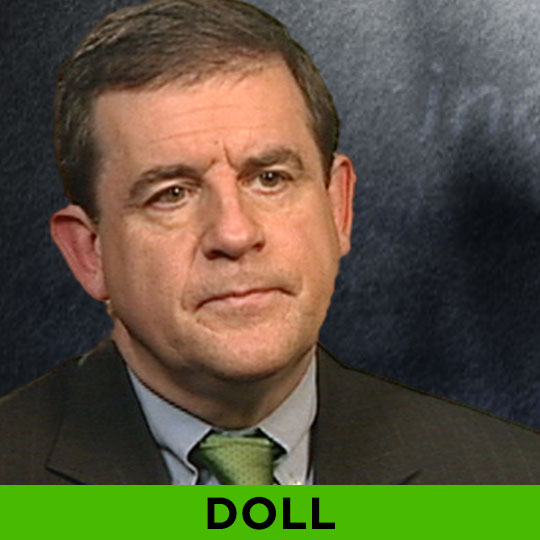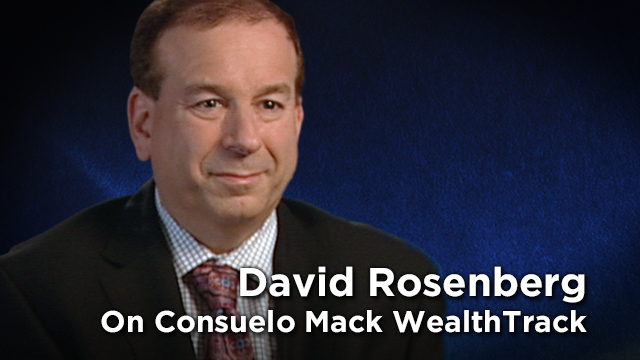Three years into an economic recovery, it sure doesn’t feel like one. We are even beginning to hear the dreaded “R” for recession word here in the U.S. A recent headline in the Financial Times read: “Blue-Chips Raise Recession Fears.” The FT reported that “estimates of revenue growth for the largest us companies are being scaled back sharply by Wall Street analysts, signaling a mounting risk that the world’s largest economy may enter recession later this year.”
Special Series
FRANCOIS TRAHAN: INVESTMENT STATEGIST SWITCHES GEARS FROM BEAR TO BULL
It’s nice to be able to focus on some positive news for a change and as you will discover in a moment, this week’s guest is one of the most upbeat Financial Thought Leaders out there right now, at least for the next several months. Here are some developments he’s following that might lift your spirits as well.
BOB DOLL: BULLISH ON STOCKS
Bob Doll is a widely followed strategist and portfolio manager, an unusual combination at major Wall Street firms, who has excelled in both disciplines. We began the interview by asking Bob to step way back from the noise of the day and share his longer term views of where we are and where we are heading. My first question was why, after the worst decade since the 1930’s, he is predicting that stock returns in this decade will be in the high single digits.
David Rosenberg: Financial Thought Leader
This week, we are sitting down for an in-depth interview with one of the handful of prognosticators who has gotten it right going into and through the rolling global financial crisis we are experiencing to this day. He is Financial Thought Leader David Rosenberg, chief economist and strategist at Toronto-based wealth management firm Gluskin Sheff. […]
David Rosenberg: Financial Thought Leader
Amy O’Brien & Ingrid Dyott: Investing in a Socially Responsible Way
Impact investing, while not yet mainstream in this country is growing rapidly and is very much a global phenomenon. The financial times recently reported that “about 95% of the 250 largest global companies now report on their corporate responsibility activities, a jump of more than 14% from 2008. The Financial Times notes that two-thirds of those that do not report are based in the U.S. and the picture is more mixed among smaller companies. However increasing numbers of investors in the U.S. are paying attention to environmental, social and governance issues, or ESG as they are known in the trade. According to a report by the Social Investment Forum Foundation on socially responsible investing trends in the U.S.,“sustainable and socially responsible investing (SRI) in the United States has continued to grow at a faster pace than the broader universe of conventional investment assets under professional management.”








